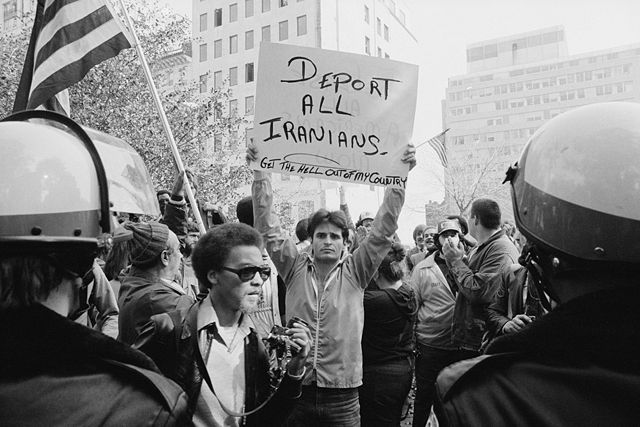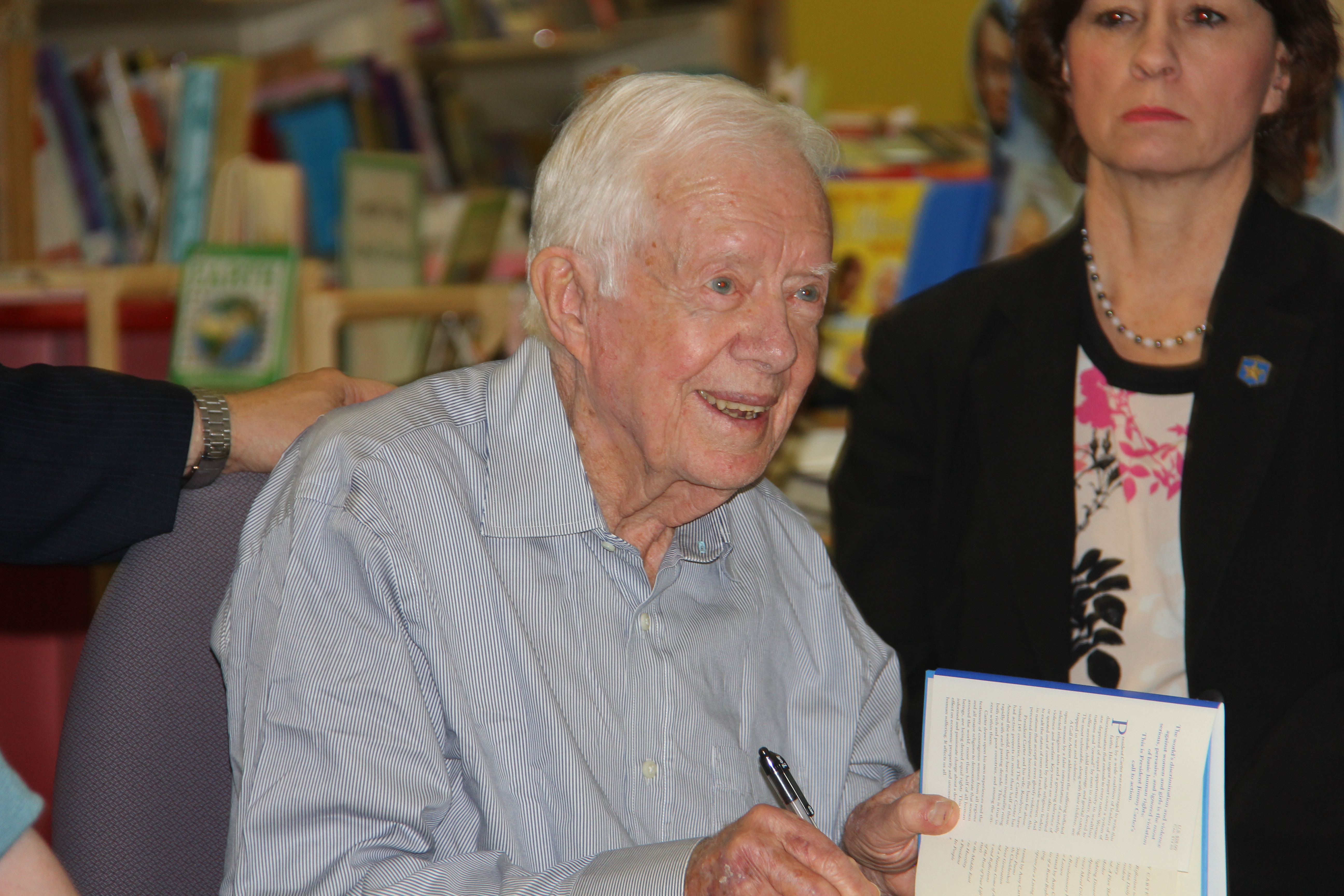5 Things Everyone Should Know About President Jimmy Carter
By:
Former United States President Jimmy Carter said at a press conference Thursday that four spots of cancer had spread to his brain, a step beyond the melanoma tumor previously found on his liver, which was removed earlier this month.
The announcement comes just a week after the 90-year-old former president and longtime humanitarian activist announced that he had cancer, which was discovered following symptoms Carter developed while traveling in Guyana earlier this spring. He said radiation treatment would begin Thursday afternoon.
At the news conference in Atlanta, Carter, characteristically measured and composed, said that he initially feared he only had weeks left to live after receiving the first diagnosis, but was now at peace and optimistic about his prognosis.
"I'm perfectly at ease with whatever comes," Carter said. "I do have a deep religious faith, which I'm very grateful for."
Carter's legacy is a rich one, stretching from his humble beginnings growing up on a peanut farm to his tenure in office as a broker of peace to a tireless post-presidency career of humanitarian campaigning and activism—he was also a Nobel Peace Prize winner in 2002.
"I have had a wonderful life, thousands of friends, and I've had an exciting, adventurous, gratifying existence," Carter said with a smile. "I'm ready for anything and I'm looking forward to a new adventure."
Here are five moments that define his legacy.
The Camp David Accords
_-_THE_TRIPLE_HANDSHAKE_IN_THE_PEACE_TREATY_SIGNING_BETWEEN_ISRAEL_AND_EGYPT.jpg?auto=format&crop=faces&fit=crop&q=60&w=736&ixlib=js-1.1.0) Wikimedia Commons - wikimedia.org
Wikimedia Commons - wikimedia.org
The 1978 agreement establishing a historic, albeit fragile, diplomacy between Israel and Egypt—a first for Israel and any of its Arab neighbors—aimed to bookend decades of hostility between the two countries and tried to set in place a framework for peace across the Middle East. The accords are widely considered to be Carter's most notable achievement in office. The agreement's stipulations included that Israel pull out of the strategically important Sinai peninsula and return it to Egypt and for Israel to establish a plan to eventually grant self-governance in some form to Palestinians in the occupied West Bank and Gaza Strip. Though not all the agreements in the deal were honored and the broader peacekeeping goals largely fell through, the deal was historic for establishing diplomacy between Egypt and Israel—which had technically been at war since the latter's creation in 1948—and for remarkable display of fortitude in foreign policy.
Iran Hostage Crisis
 Wikimedia Commons - wikipedia.org
Wikimedia Commons - wikipedia.org
Another landmark of Carter's presidency came shortly after Camp David and also revolved around the Middle East, though it has largely been remembered as a catastrophe. As an increasingly fervent popular opposition movement encroached on Iran's Shah and eventually deposed him, tensions flared between oppositionists who sought an end to American interventionism and the Carter administration when the Shah was given the O.K. to come to the U.S. for cancer treatment. On November 4, 1979, a large group of Iranian students stormed the U.S. Embassy in Tehran and took more than 60 Americans working there hostage, though their reasoning was rooted more in geopolitics and a symbolic break from Iran's past than American oncology. The students demanded the extradition of the Shah and money they claimed he stole from the Iranians, and when Carter's response—to pressure Tehran's new government through economic sanctions, not military action—produced no results, he launched a failed rescue campaign that in turn became fodder for the captors. The ensuing negotiations stalled for months, and the Iranians eventually released the hostages shortly after Ronald Reagan's inauguration in January 1981. According to some historians, Carter's failure to bring the Tehran Embassy staff home cost him reelection.
The "Malaise" Speech
In what many call the most important speech of his presidency, a beleaguered Carter addressed an American public burdened with a historic energy crisis following soaring oil prices and nationwide shortages. In a primetime speech, Carter addressed what he called a lack of "moral and spiritual confidence" that fundamentally threatened American democracy. The frankness with which Carter looped together the nation and himself in discussing the problems facing the country briefly led to a boost in approval ratings, but they soon dipped back down with a backlash that vilified the blame implicitly placed on the American people. Though this "crisis of confidence" speech didn't contain the word "malaise," it is often referred to as the "malaise speech."
He grew up on a peanut farm.
Before he was a one-term Georgia governor, Carter grew up on a farm outside of Plains, Georgia, owned by his father, a successful Depression-era peanut farmer. In his youth, Carter worked on the farm, and after a nearly decade-long stint in the Navy, returned to the Plains farm to take over from his father, who was diagnosed with cancer. Carter's peanut operation was a success, but after spending almost ten years in the peanut business, Carter ran for a state senate—a position that gave him his first taste of politics. Carter is still revered in Plains today, where a statue of a large peanut anthropomorphized with his trademark big-toothed grin stands tall.
Post-Presidency
 Wikimedia Commons - wikipedia.org
Wikimedia Commons - wikipedia.org
Perhaps Carter's most lasting legacy has been his work as a human rights campaigner and a sort of freelance diplomat through the Carter Center foundation.
"My life since the White House has been personally more gratifying, although the presidency was obviously the pinnacle of political success," he said at Thursday's press conference. "If I had to choose between four more years and the Carter Center, I think I would choose the Carter Center."
As CNN notes, Carter negotiated with rogue world leaders from places like North Korea, fought to eradicate diseases in tropical Africa like malaria, and worked as a peaceful diplomat in conflicts in places like Nepal, Ethiopia, the Balkans, Sudan, the Middle East, and Haiti. Carter and his wife Rosalynn devote a work of week annually to Habitat for Humanity, which would take them this year to Nepal for their 33rd year in a row. Despite a rigorous treatment plan for his cancer, Carter said Thursday he hoped to still to travel to Nepal.
